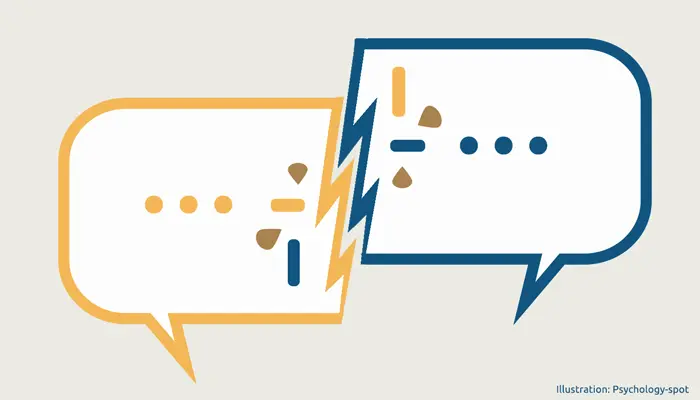
Whether we like it or not, the words we use do not only shape our thoughts but also our universe. We build our mental models of the world through words, so the choice of one or another is not due to chance, nor is it always the result of a meditated mental process.
The words we use daily are the expression of our internal states, and at the same time determine our reaction to events. They are a kind of filter that we cannot easily get rid of and, often, we are not even aware of. Therefore, the choice of words reveals a lot about who we are and how we feel, unmasking states that sometimes we are not even fully aware of.
In fact, the psychologists of the universities of Wisconsin, Arizona and California have identified the kind of language we use when we are stressed, so if you find yourself saying some of these words frequently, you can take them as warning signs indicating that you are exhausted, tense and/or anxious.
Functional words: automatic insertions that betray us
If you use frequently adverbs like “really”, “incredibly” or “truly”, you’re probably very stressed. Psychologists classify them as “functional words” and state that they are a fairly accurate indicator of our level of anxiety.
Functional words are those that do not mean much by themselves. Unlike verbs and nouns, these words do not provide much information but only serve to reinforce the rest of the speech. Within the functional words there are the affirmative adverbs, some pronouns and some adjectives.
Psychologists have long suspected that we tend to use functional words more frequently when we are stressed. Therefore, they tested their hypothesis by asking 143 people to bring recording devices with them for two days.
These people were also subjected to an analysis in which their white blood cells were counted, as it is known that their increase is a symptom of stress.
After analyzing the audio collected in two days and the laboratory tests, the psychologists discovered that, in fact, the most stressed people, with a higher number of white blood cells, used more functional words. Their speech was full of adverbs like: really, certainly, incredibly and surely.
They also noted that they gave priority to pronouns such as “me” and “mine” rather than “them” and “yours”, which indicates a more egocentric view of the world, caused by the pressure they feel. In other words: the stress forces us to close up in our inner world, so we lose perspective. And this manifests itself through a more “selfish” discourse.
Your words can tell you what you still do not know
The most curious thing about this experiment is that functional words could predict stress levels better than people’s perceptions. In fact, sometimes, when we go through a particularly difficult and tense period, we focus so much on trying to get out of that situation that we do not realize the stress level we are suffering from.
Fortunately, functional words can become a warning signal that warns us of our stress, anxiety and tension, so we can stop along the way and change direction. The psychologists explain that this is due to the fact that the choice of functional words is more automatic and less conscious, while the choice of verbs and nouns is a much more conscious process.
Source:
Mehl, M. R. et. Al. (2017) Natural language indicators of differential gene regulation in the human immune system. PNAS.



